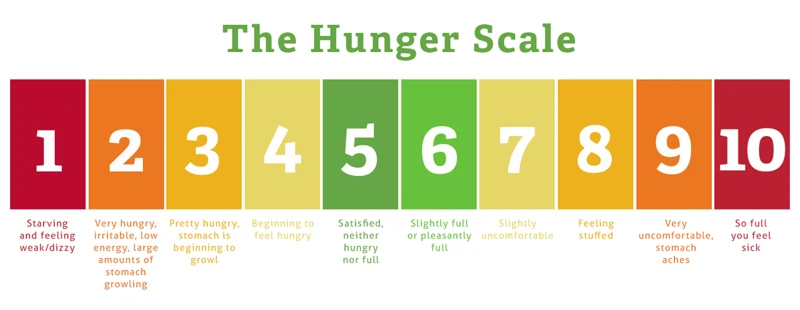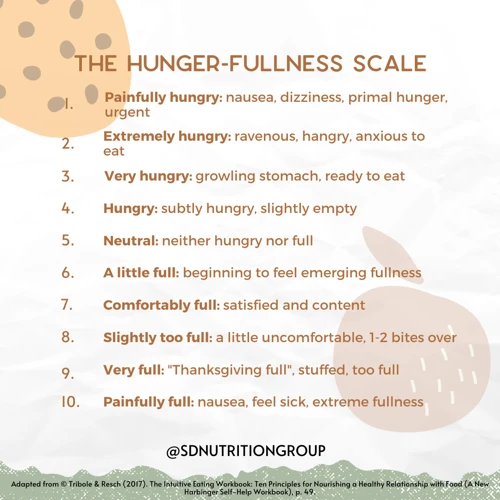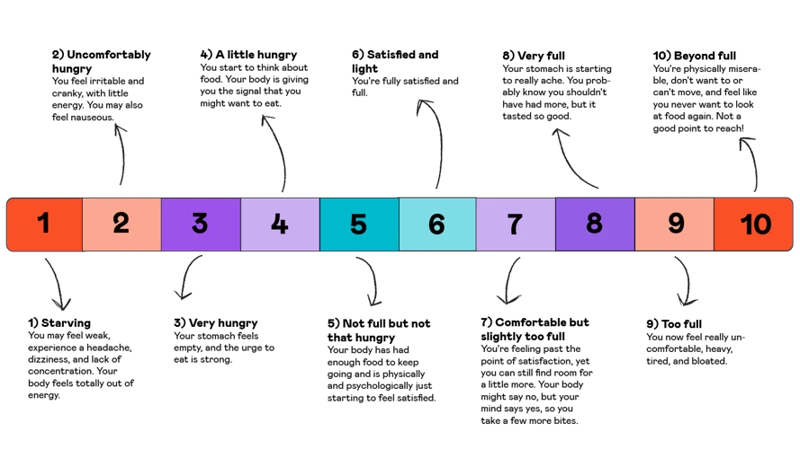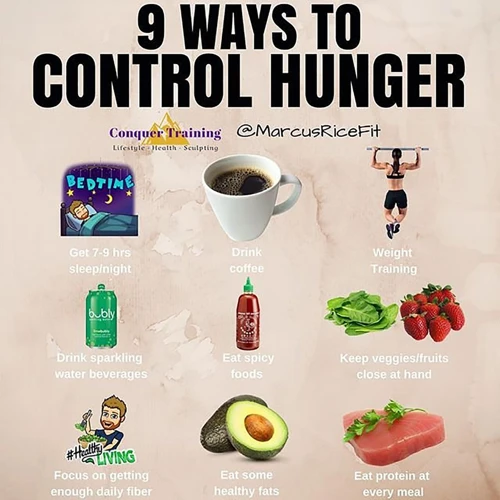As human beings, we have the basic physiological needs of hunger and sleep, which are essential for our survival and optimal functioning. However, at times it can be difficult to differentiate between the two when we are feeling certain physical sensations. Have you ever woken up in the middle of the night feeling famished or skipped a meal only to feel lethargic and drained? It can be challenging to understand if we are truly hungry or if it’s just a lack of sleep that is causing these sensations. In this article, we will delve into the causes and symptoms of hunger and lack of sleep, and discuss how to differentiate between the two so that we can cope better with our day-to-day lives.
Hunger and Cravings

When it comes to understanding what our bodies are telling us, figuring out the difference between hunger and cravings can be a bit puzzling. We may feel a strong desire for a specific food and mistake it for hunger, or we may be genuinely hungry and not recognize it due to other factors such as lack of sleep. In this section, we’ll explore the differences between these two sensations and examine the possible reasons for their occurrence.
Hunger vs. Cravings
Hunger is the body’s physiological response to a lack of food, while cravings are typically a psychological desire for specific foods. It’s important to differentiate between the two in order to properly address food-related issues.
Hunger:
- Hunger is a physical sensation that affects the entire body.
- Symptoms of hunger include a growling or empty sensation in the stomach, lightheadedness, weakness, irritability, and difficulty concentrating.
- Hunger is usually relieved by consuming a satisfying meal.
Cravings:
- Cravings are typically a result of psychological or emotional triggers, such as stress or boredom.
- Symptoms of cravings include a strong desire for a specific food, even when not hungry, and an inability to stop thinking about the desired food.
- Cravings are usually not relieved by consuming other types of food and may persist even after eating.
Understanding the difference between hunger and cravings can help individuals make better food choices and avoid overeating. It’s important to listen to the body’s signals and try to identify the root cause of food cravings. In some cases, finding alternative coping mechanisms, such as exercise or breathing techniques, may be more effective than giving in to food cravings.
Causes of Hunger and Cravings
There are many causes of hunger and cravings, but some of the most common ones are:
- Physical activity and energy expenditure: When we engage in physical activity, our bodies use energy, which in turn increases our hunger levels as our bodies require more fuel.
- Hormonal imbalances: Hormones such as ghrelin and leptin play a crucial role in regulating our appetite. When these hormones are out of balance, it can lead to increased feelings of hunger and cravings.
- Stress and emotions: Stress can cause our bodies to produce cortisol, which can in turn increase our feelings of hunger and food cravings. Emotional eating is also a common phenomenon, where individuals turn to food as a way to cope with negative feelings such as stress, anxiety, or sadness.
- Dehydration: When we are dehydrated, our bodies can mistake thirst for hunger, leading us to eat when we are actually just thirsty. It’s important to stay hydrated throughout the day to avoid this confusion.
- Poor diet and nutrition: If our bodies are not receiving the proper nutrients they need, it can result in increased feelings of hunger and cravings for unhealthy, processed foods.
It’s important to pay attention to our bodies and identify the root causes of our hunger and cravings in order to address them appropriately. By addressing the underlying causes, we can better manage our hunger levels and maintain a healthy diet.
Lack of Sleep and Hunger

It’s no secret that our bodies need both sleep and food to function properly. Yet, have you ever found yourself feeling ravenous after a poor night’s sleep? The connection between lack of sleep and hunger is a perplexing one. While it may seem intuitive to assume that our bodies simply require more energy when we’re awake for longer periods, the relationship between the two is more intricate than meets the eye. In this section, we’ll explore the fascinating interplay between sleep and hunger, and how we can learn to tell the difference between the two.
How Lack of Sleep Affects Hunger
The relationship between lack of sleep and hunger is complex, with several different factors involved. Here are some of the ways that lack of sleep affects hunger:
| Effect | Description |
|---|---|
| Increased appetite | When you don’t get enough sleep, your body increases its production of the hormone ghrelin, which stimulates your appetite. This means that you may feel hungrier than usual, even if you’ve eaten enough. |
| Cravings for high-calorie foods | Sleep deprivation has been shown to increase cravings for sweets, salty snacks, and other high-calorie, low-nutrient foods. This may be due to changes in brain chemistry that occur when you’re tired. |
| Decreased satiety | In addition to increasing ghrelin levels, lack of sleep also decreases levels of the hormone leptin, which normally signals to your brain that you’ve had enough to eat. As a result, you may continue to feel hungry even after eating a full meal. |
| Changes in food preferences | Research suggests that sleep deprivation may alter your brain’s reward system and make you more likely to crave unhealthy foods. This can contribute to a cycle of poor eating habits that are difficult to break. |
The disruptions to hormone levels and brain functioning caused by lack of sleep can lead to overeating, poor food choices, and difficulty feeling satisfied after a meal. It’s important to be aware of these effects and take steps to counteract them if you’re struggling with sleep deprivation.
Why Lack of Sleep Causes Hunger
There are several factors which contribute to why lack of sleep can lead to increased hunger and cravings. Here is a table summarizing these factors:
| Factor | Explanation |
| Sleep-deprivation | Lack of sleep causes a rise in the hormone ghrelin, which stimulates appetite. |
| Cortisol levels | Lack of sleep also causes a rise in cortisol levels, which can increase hunger and cravings. |
| Energy expenditure | When we are tired, we may be less likely to engage in physical activity, which reduces energy expenditure and can lead to an increase in hunger. |
| Brain function | Lack of sleep can impair the function of the prefrontal cortex, which is responsible for decision-making and impulse control, leading to more impulsive and unhealthy food choices. |
Taken together, these factors contribute to a situation where individuals who are sleep-deprived may feel hungrier and have stronger cravings for food, particularly high-carbohydrate, high-fat junk food.
Differentiating Between Hunger and Lack of Sleep

One of the challenges of taking care of our bodies is that physical sensations can sometimes be confusing. For instance, when we feel tired, we might not know whether we are actually hungry or simply sleep-deprived. In order to care for ourselves effectively, we need to be able to differentiate between hunger and lack of sleep. This can be tricky, but there are some physical symptoms, timing patterns, and food preferences that are unique to each experience. By paying attention to our bodies, we can learn to distinguish between the two, which can help us to respond in ways that are healthy and satisfying.
Physical Symptoms of Hunger
When your body needs food, it sends signals to your brain, which causes a number of physical symptoms. Some of the physical symptoms of hunger include:
- Stomach Growling: The sound of stomach growling is often a sign of hunger. This happens when the stomach and small intestine contract in an effort to move food through the digestive system.
- Headache: When you’re hungry, your blood sugar levels drop, which can lead to headaches. These headaches are often described as dull and achy.
- Irritability: Low blood sugar can also affect your mood, making you feel irritable and short-tempered.
- Weakness and Fatigue: When your body is low on fuel, you may feel weak and tired as a result.
- Dizziness: A lack of food can cause a drop in blood pressure, leading to dizziness or lightheadedness.
- Difficulty Concentrating: When you’re hungry, it can be difficult to concentrate on tasks and stay focused.
- Coldness: When your body is feeling depleted, your body temperature may drop, leading to feeling cold.
If you’re experiencing any of these symptoms, it’s a good idea to eat something. Keeping healthy, balanced snacks on hand can help you avoid hunger pangs and any negative side effects that come with it.
Physical Symptoms of Lack of Sleep
When it comes to lack of sleep, there are several physical symptoms that can indicate a person is not getting enough rest. Here are a few signs to look out for:
- Fatigue: Perhaps the most obvious physical symptom of a lack of sleep is fatigue. The body needs rest to repair and rejuvenate, and when it doesn’t get enough, it can leave a person feeling exhausted and drained.
- Dark Circles: Another common physical sign of a lack of sleep is dark circles under the eyes. These are caused by blood vessels dilating and pooling under the skin, giving the appearance of a shadow or bruise.
- Skin Changes: A lack of sleep can also lead to changes in a person’s skin. This can include dryness, fine lines, and wrinkles; as well as an overall dull and lackluster complexion.
- Headaches: Many people who don’t get enough sleep complain of headaches. These can range from mild to severe, and can be caused by a variety of factors, including muscle tension and changes in brain chemistry.
- Muscle Weakness: Chronic lack of sleep can also lead to muscle weakness and decreased coordination. This can be particularly dangerous for people who are driving or operating heavy machinery.
- Increased Appetite: Surprisingly, a lack of sleep can also lead to an increase in appetite. The body produces higher levels of the hormone ghrelin, which stimulates hunger; and lowers levels of leptin, which helps regulate appetite.
If you are experiencing any of these physical symptoms, it may be a sign that you need to focus on getting more rest. It’s important to prioritize healthy sleep habits and seek the help of a healthcare professional if necessary.
Timing and Patterns
When trying to differentiate between hunger and lack of sleep, timing and patterns can play a crucial role. Timing refers to when you feel the sensation of hunger or the need for sleep, while patterns refer to how often you experience the sensation.
If you consistently feel hungry at certain times of the day, such as mid-morning, mid-afternoon, and early evening, it could be a sign that your body is used to those mealtimes and is experiencing true hunger. However, if you only feel hungry sporadically, particularly after a restless night’s sleep, it could be a sign that your body is actually trying to compensate for lack of sleep. On the other hand, if you consistently wake up feeling tired and groggy despite getting adequate sleep, it could be a sign that something else is affecting your sleep quality.
To better understand these patterns, it can be helpful to keep a food and sleep diary. Record the times you eat and the types of food you consume, as well as the times you go to bed and wake up, the quality of your sleep, and any other relevant factors, such as stress or exercise. This can help you identify any potential patterns or triggers for both hunger and lack of sleep.
In the table below, we provide an example of how to keep a food and sleep diary:
| Date | Meals | Snacks | Sleep Time | Wake Time | Sleep Quality (1-10) | Stress Level (1-10) | Exercise (Yes/No) |
|---|---|---|---|---|---|---|---|
| Monday, May 3 | 7:00 AM – Oatmeal with fruit 12:00 PM – Salad with chicken 6:00 PM – Grilled salmon with veggies |
10:00 AM – Apple 3:00 PM – Granola bar |
10:00 PM | 6:30 AM | 7 | 5 | No |
| Tuesday, May 4 | 8:30 AM – Smoothie with protein powder 1:00 PM – Turkey and avocado wrap 7:00 PM – Baked chicken with sweet potato |
10:30 AM – Greek yogurt 3:30 PM – Carrots and hummus |
11:30 PM | 8:00 AM | 8 | 3 | Yes |
By keeping track of your eating and sleeping habits in this way, you can start to see any patterns that may exist between hunger and lack of sleep. This can help you make more informed decisions about your diet and lifestyle, and develop strategies for coping with both sensations.
Food Preferences
One way to differentiate between hunger and lack of sleep is to observe the types of foods you crave. When you’re experiencing true hunger, your body will generally crave foods that are high in nutrients and satiating. On the other hand, if you’re sleep-deprived, your body may crave foods that are high in sugar, fat, and carbs to give you a quick energy boost.
Here is a comparison of food preferences based on hunger versus lack of sleep:
| Hunger | Lack of Sleep | |
|---|---|---|
| Cravings | Fruits, vegetables, lean proteins, whole grains | High-carb, high-fat, sugary foods |
| Portion sizes | Satiating portions, eating until full | Bigger portions, overeating |
| Drink preferences | Water, tea, low-fat milk | Sugary drinks, high-fat milkshakes |
As you can see, when you’re experiencing true hunger, your food preferences are generally healthier and more balanced. On the other hand, when you’re lacking sleep, your body may crave less nutritious foods that offer quick energy, but ultimately leave you feeling unsatisfied and lethargic.
Understanding the differences in food preferences between hunger and lack of sleep can help you make more informed choices about what you eat and drink.
How to Cope
As we have seen, hunger and lack of sleep can often be confused, leading to unhealthy eating habits and poor sleep hygiene. Coping with these challenges requires a multifaceted approach that incorporates both healthy eating habits and good sleep hygiene. In this section, we will explore some effective strategies for coping with both hunger and lack of sleep. Whether it’s adjusting your bedtime routine or changing your dietary choices, there are steps you can take to ensure that you are giving your body the rest and nourishment it needs to function at its best. Let’s dive in and explore some of these coping mechanisms.
Sleep Hygiene Tips
To improve the quality of your sleep and reduce the likelihood of confusing hunger with lack of sleep, it is essential to practice good sleep hygiene. Here are some useful tips and tricks to help you get started:
| Tip | Description |
|---|---|
| Establish a Consistent Sleep Schedule | Try to go to bed and wake up at the same time every day, even on weekends. |
| Create a Relaxing Bedtime Routine | Develop a calming routine, such as reading or yoga, to help unwind before sleep. |
| Avoid Stimulants Before Bed | Avoid coffee, tea, or nicotine close to bedtime, as they can interfere with sleep. |
| Stay Active During the Day | Regular exercise can help improve sleep quality, but avoid intense workouts right before bed. |
| Create a Comfortable Sleep Environment | Make sure your bedroom is dark, cool, and quiet to promote optimal sleep conditions. |
| Avoid Technology Before Bed | Avoid using electronic devices, such as phones or computers, in the hours leading up to bedtime. |
| Limit Alcohol Intake | Avoid drinking too much alcohol, as it can interfere with sleep quality and lead to dehydration. |
Following these sleep hygiene tips can help you establish a regular sleep routine and improve the quality of your sleep. This will ultimately reduce the likelihood of confusing hunger with lack of sleep, and help you better differentiate between the two.
Healthy Eating Habits
Establishing healthy eating habits can help individuals better manage their hunger and prevent overeating due to lack of sleep. Here are some tips for developing these habits:
- Eat Regularly: Skipping meals can lead to increased hunger and cravings. Regular meals can help regulate hunger and prevent excessive snacking.
- Choose Whole Foods: Whole foods such as fruits, vegetables, whole grains, and lean proteins can help promote satiety and provide necessary nutrients for good health.
- Limit Processed Foods: Processed foods can be high in added sugars, fats, and sodium, which can contribute to cravings and overeating.
- Avoid Late-Night Snacks: Eating close to bedtime can disrupt sleep and increase the risk of weight gain. Try to finish eating at least 2-3 hours before bedtime.
- Drink Water: Drinking enough water can help reduce hunger and prevent dehydration, which can sometimes be mistaken for hunger.
- Practice Mindful Eating: Pay attention to your body’s hunger and fullness signals while eating. Avoid distractions such as television or electronic devices, as they can lead to mindless eating.
- Get Enough Protein: Including protein in meals and snacks can help promote satiety and prevent overeating.
- Keep Healthy Snacks on Hand: Having healthy snacks such as fruits, nuts, or vegetables available can help prevent the temptation to reach for processed or high-calorie options.
By incorporating these healthy eating habits into their lifestyle, individuals can better manage their hunger and maintain a healthy weight even with a lack of sleep.
Alternative Coping Mechanisms
When experiencing hunger or lack of sleep, it can be tempting to turn to unhealthy coping mechanisms such as overeating or consuming caffeine. However, there are alternative coping mechanisms that can help alleviate the symptoms without having negative consequences on your health. Here are some options:
| Activity | Description |
|---|---|
| Exercise | Physical activity can help increase energy and decrease cravings. Aim for at least 30 minutes of moderate exercise per day. |
| Hydrate | Dehydration can often cause feelings of hunger. Make sure to drink plenty of water throughout the day. |
| Meditation | Meditation can help reduce stress and improve sleep quality. Set aside time each day to practice mindfulness or relaxation techniques. |
| Journaling | Writing down thoughts and feelings about hunger or lack of sleep can help process and manage the emotions associated with these experiences. |
| Aromatherapy | Essential oils such as lavender can promote relaxation and improve sleep quality. Diffuse or apply topically as needed. |
| Herbal Tea | Herbal teas such as chamomile or peppermint can promote relaxation and improve digestion. Avoid caffeine and added sugars. |
| Yoga | Yoga can improve flexibility and balance, while also reducing stress and promoting relaxation. Find a class or practice at home. |
Remember, everyone’s coping mechanisms will differ depending on personal preferences and beliefs. Find what works best for you and make it a part of your daily routine.
Conclusion
In conclusion, determining whether you are experiencing hunger or lack of sleep can be a challenging task. However, by paying close attention to physical symptoms, timing, and food preferences, you can get a better idea of what your body truly needs. It is important to note that both hunger and lack of sleep can have negative impacts on your health and wellbeing.
Fortunately, there are ways to cope with these issues. Incorporating healthy eating habits and practicing good sleep hygiene can go a long way in alleviating the symptoms of hunger and lack of sleep. It is also important to find alternative coping mechanisms, such as exercise, meditation, or talking to a friend or professional.
Remember, taking care of yourself and listening to your body’s needs should always be a top priority. By understanding the causes and symptoms of hunger and lack of sleep, you can better care for yourself and promote overall well-being. Take the time to prioritize sleep, nutrition, and self-care, and your body will thank you for it.
Frequently Asked Questions
What are some common causes of hunger?
Common causes of hunger include an empty stomach, lack of nutrients, and low blood sugar levels.
What are cravings and why do we experience them?
Cravings are intense desires for specific foods. They are caused by a variety of factors including hormones, nutrient imbalances, and emotional triggers.
How does lack of sleep affect our appetite?
Lack of sleep can disrupt the hormones that regulate our appetite, leading to an increase in hunger and cravings.
What are some physical symptoms of hunger?
Physical symptoms of hunger include stomach growling, weakness, dizziness, and irritability.
What are some physical symptoms of lack of sleep?
Physical symptoms of lack of sleep include fatigue, dark circles under the eyes, mood swings, and difficulty concentrating.
Can lack of sleep lead to overeating?
Yes, lack of sleep can lead to overeating due to an increase in hunger hormones and a decrease in the hormones that signal fullness.
How can we differentiate between hunger and lack of sleep?
We can differentiate between hunger and lack of sleep by paying attention to when we last ate, our physical symptoms, food preferences, and timing and patterns of hunger and fatigue.
What are some tips for improving sleep hygiene?
Some tips for improving sleep hygiene include establishing a regular sleep schedule, creating a relaxing bedtime routine, and avoiding caffeine and alcohol before bed.
What are some healthy eating habits we can incorporate into our daily routine?
Some healthy eating habits include eating a balanced diet full of fruits and vegetables, drinking plenty of water, and listening to our bodies’ hunger and fullness cues.
What are some alternative coping mechanisms for hunger and lack of sleep?
Alternative coping mechanisms for hunger and lack of sleep include engaging in stress-reducing activities such as exercise or meditation, seeking social support, and practicing self-care.







